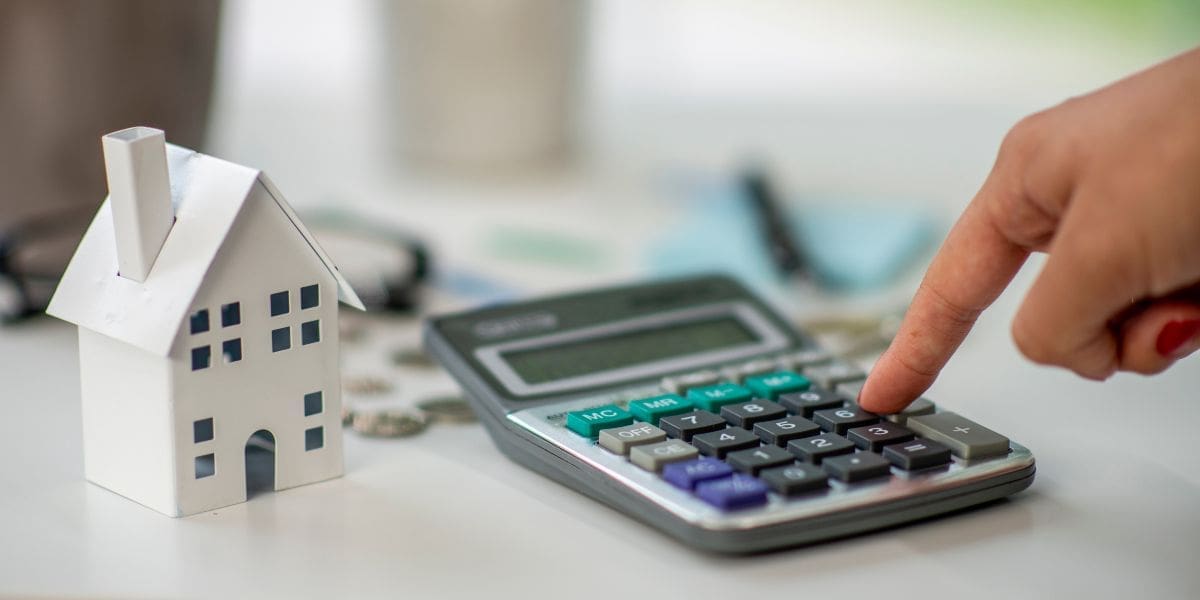First-time buyer mortgages
First-time buyers will be pleased to know that a mortgage for their first house purchase will be no different to a standard mortgage.
Get in touch for a free initial, no-obligation discussion about your mortgage situation.
Do you qualify?
No credit checks & only takes minutes!
What we cover in this guide
- Getting a mortgages as a first-time buyer
- Try our mortgage affordability calculator
- Read our First-time buyer guide
- How much deposit do first-time buyers need?
- How do lenders work out affordability for first-time buyers?
- First-time buyer mortgage interest rates
- What are the mortgage costs for first-time buyers?
- What are the benefits of using a mortgage broker as a first-time buyer?
- Frequently asked questions
Getting a mortgages as a first-time buyer
Lenders apply their usual affordability criteria to borrowers regardless of their level of experience. But you will have a more detailed discussion regarding budgets. This is to ensure you’re aware of all the costs around buying a home and the month-to-month expenses around home ownership.
Your budgets will need to consider Council Tax, utilities, and insurances. As well as your regular general living expenses such as food, travel, and housekeeping.
These are just some of the things our experienced advisors will go over with you when putting together your application. Using an experienced mortgage broker can be essential as a first-time buyer, as you will have no prior experience.

Fill out our quick and easy Bad Credit mortgage calculator below. We only require a few details to see how much you may be able to borrow.
NO CREDIT CHECKS!

You’ll be pleased to know that there are indeed mortgages available for first-time buyers with bad credit.

If you’re looking into a mortgage, our various calculators will help guide you to see what you could be entitled to borrow and what might suit your needs best.

It’s easy to speak with one of our friendly advisers – we can be flexible to your needs and available outside of office hours if necessary.
How much deposit do first-time buyers need?
Lenders don’t set first-time buyer deposit requirements, instead you’ll require the same amount as anyone else. In general a minimum of 5% of the property value will be required to secure the mortgage. Although, do note that this may change with time and economic fluctuations.
Exceptions arise if you buy a property below market value, which could happen if the purchase is from another family member. Always keep in mind that the larger the deposit you’re able to provide, the better the terms and interest rates you can get.
A deposit can come from a variety of sources. Commonly, homebuyers will have put money aside regularly over a period of time in order to save up a sufficient sum to get on the property ladder.
Although, we have seen an increased frequency of deposits provided by family members as gifts in recent years. Lenders will not normally have a problem with this, as long as the sums are not repayable and do not entitle the giver to live in the property or have a financial interest in it.
Whatever size deposit you can provide, the level of borrowing a lender is prepared to consider will still depend on their affordability assessment.
How do lenders work out affordability for first-time buyers?
Traditionally, lenders would work out how much you can borrow by applying a multiple to your annual income. They would look at your total income and multiply it by 4, or sometimes 5, to get than amount.
However, in 2014 changes to the market meant that lenders needed to change the way they calculated their offers. Now lenders base their assessments on an affordability model rather than simply an income metric. While income is still major factor in their calculations, lenders take a number of other elements into account, including:
- An applicant’s age (i.e. how long can they maintain the loan?)
- The level of deposit or amount of equity
- Number of dependants
- Outstanding credit commitments
- Childcare costs
- Pension contributions and other salary deductions
- Council tax
- Travel costs
- Ground rent and/or maintenance payments, where applicable (i.e. leasehold properties)
This is not an exhaustive list and remember every lender will have their own criteria. This means some lenders will take more factors into account, and some less. But it does go some way to show you how lenders calculate how much you will be able to borrow.
In general, lenders will not make a distinction between a first-time buyer and borrowers moving home. But, people moving will usually have a level of equity already tied into their existing property. This does make a difference to decisions on lending terms, rates and amounts. It’s also very rare that a lender will offer more than 5x the applicant’s annual income.
If you want to get a rough idea of what you could borrow, why not try our free mortgage affordability calculator. Or if you want a more accurate representation, get in touch today!
First-time buyer mortgage interest rates
You’ll be happy to know that first-time buyer mortgage rates are the same as those for any other applicant. The differences between your case and that of a homeowner may show, due to the level of deposit you can provide. The higher the deposit you are able to put down, the better the terms and interest rates you are usually able to get.
Some lenders do have favourable rates reserved for first-time buyers. They are designed to attract new business, with bonuses or benefits associated with the deal. These perks can be free valuations or surveys, cash back incentives or the waiver of some fees.
To get an idea of current mortgage rates, there are plenty of current rates tables available. However, these should be used as a rough guide as your circumstances will influence the rate you’re offered.
To get an accurate idea of what rate could be available to you, reach out today.
What are the mortgage costs for first-time buyers?
There are a range of first-time buyer mortgage costs to keep in mind, they include:
- The deposit – this is usually a minimum of 5% of the value of the property you plan to buy. But policies may vary from lender to lender and 10% is not uncommon.
- Stamp Duty Land Tax (SDLT) – you will need to pay this to HMRC if you pay over £300,000 for the property.
- Solicitor or conveyancer fees – they take care of all the legal paperwork involved in a property purchase.
- Payments to the Land Registry (when your property is registered in your name), Local Authority and various other third parties. These will be handled by your solicitor while they carry out due diligence on the property.
- You may also need to pay a fee for a mortgage valuation or survey, depending on the deal the lender offers.
- You may also be required to pay a mortgage adviser’s fee. This will depend on the mortgage product and any product-related fees to the lender.
What are the benefits of using a mortgage broker as a first-time buyer?
Going over your aims, questions and reservations with a suitably qualified, experienced mortgage broker could prove an invaluable experience.
Some key points about the purchase process we would run through with you include:
- The whole legal process – who is involved and the stages you’ll have to go through when buying your first home.
- A thorough look at your anticipated income and outgoings in order to build up a realistic budget analysis.
- You’ll need to know the level of mortgage that your income can support. Considering any possible future changes to your circumstances is essential too.
- How big a deposit you are able to put down, and how the level of your deposit is likely to affect the product you’re offered.
- How various lenders’ affordability assessments and lending criteria could influence your options and decisions going forward.
- All the various costs and fees that come with buying a house.
- Detailed property surveys, when they might be necessary, what your options around them are and the costs involved.
After we get an understanding of your circumstances, we’ll be able to research the market and determine a suitable lender.
A good broker doesn’t just vanish after completion takes place. When the introductory period on your mortgage is due to come to an end we’ll reach out so we can discuss potential new deals.
Frequently asked questions
- What is a guarantor mortgage?
- Why would a mortgage in principle be declined?
- I am a first-time buyer with poor credit – can I get a mortgage?
- Does a mortgage broker obtain exclusive rates for first-time buyers?
This is where a third party is named on the mortgage application as guarantor. They are required to sign a legal document and agree to cover the monthly repayments if you do not cover them.
The guarantor will not own or have any interest in your property, and they won’t be named on the Title Deeds.
Here are a few of the most common reasons:
- You’re not listed on the electoral roll
- There are errors on your form
- Your deposit is too small
- You’re asking to borrow too much
- Your credit rating is lower than the lenders like to see
Yes it is possible to do so. The criteria for qualifying for a mortgage when you have a poor credit is very similar whether you are a first-time buyer or already own your own home.
Lenders will base any mortgage decision around the hard facts contained in your credit file. With items of bad credit ranging from relatively minor series of late card payments to more serious instances of default or County Court Judgments.
They will also consider how much time has passed since these instances occurred and your current financial conduct.
Regardless of your status as a buyer, a broker will often be able to secure exclusive deals and rates.
Mortgage brokers with access to the whole market will be able to source lenders, deals, and rates across the whole market. From standard high street names to the niche-market products available through small and specialist lenders.
"*" indicates required fields

